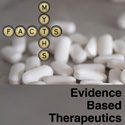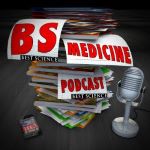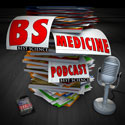Episode 617: A Whiff of Prevention: Treating Male Partners to Reduce Bacterial Vaginosis Recurrence
In episode 617, Tina and James bring in Caitlin Finley to review the latest trial that attempts to answer the question of does treating male sexual partners of females undergoing treatment for bacterial vaginosis infection decrease recurrence? We’ll find out that despite this trial getting lots of press it doesn’t provide definitive evidence about who/how to treat. Have a listen as you need to see what the results really show.
Show Notes
Tools For Practice
A Whiff of Prevention: Treating Male Partners to Reduce Bacterial Vaginosis Recurrence



